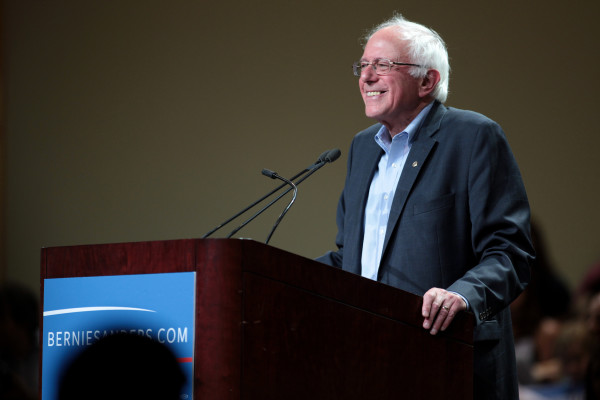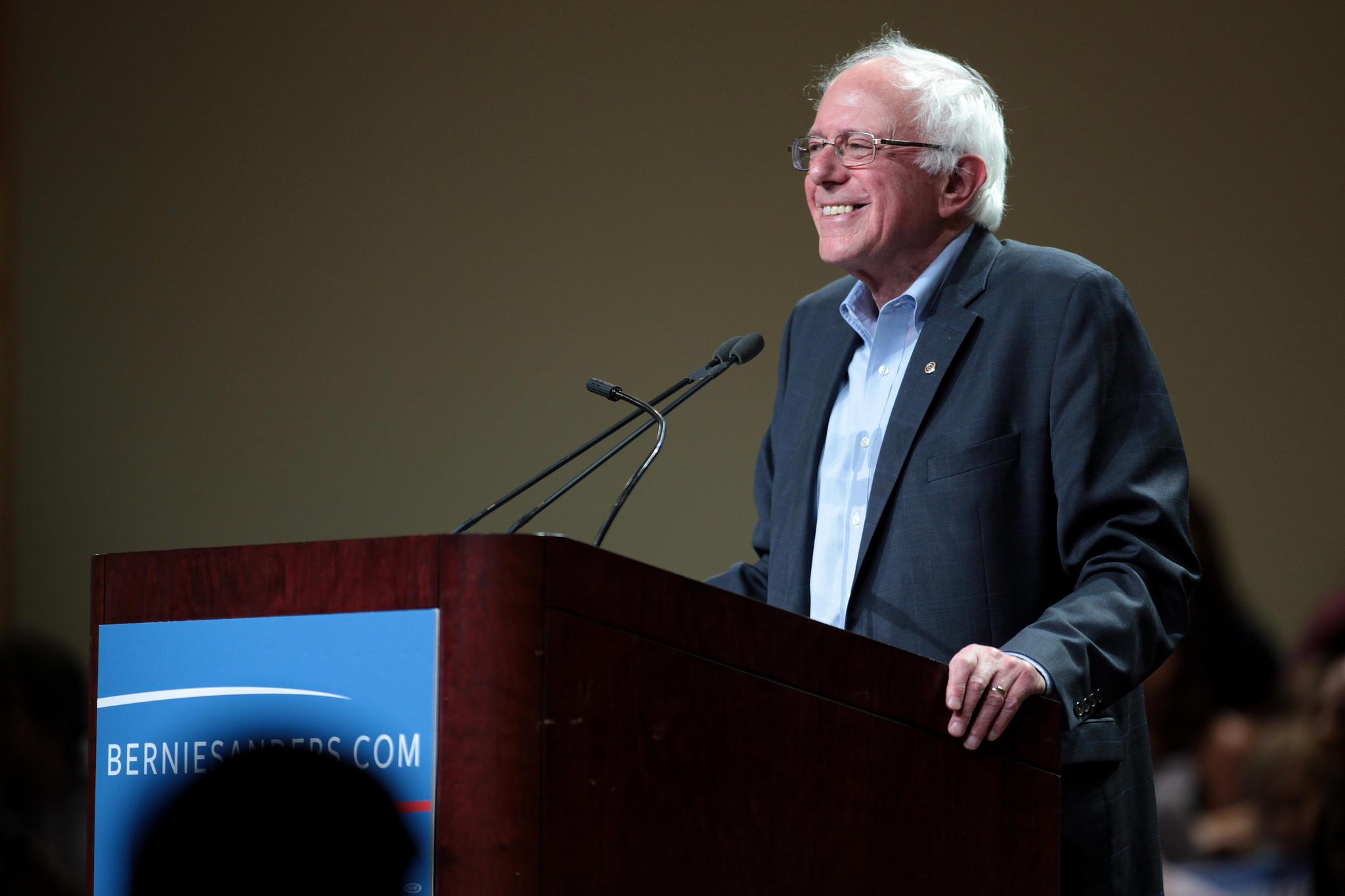
A few weeks ago, I wrote about how Bernie Sanders makes the decision to talk about his Jewishness, specifically how it contrasts starkly with the ways in which Donald Trump talks about Jewishness.
Since then, Bernie Sanders has gone on to nearly tie the Iowa caucus with Hillary Clinton and, last week, defeat her in the New Hampshire primary.
Since then, the Jewish community has been frantically trying to categorize what type of Jew Bernie Sanders is. We’ve seen some of this before — looking into Bernie Sanders’ past, investigating his brief stint on a kibbutz when he was younger. Since his win in New Hampshire, these frantic attempts to place Bernie into a Jewish category have only increased. We look back to his past and his upbringing to try and find a way to categorize a Jewish man who intentionally distances himself from organized religion. We even look to where he, as a Jew, “stands on Israel.”
At the same time, Bernie Sanders’ Jewishness is one that is intimately familiar to many American Jews. As the descendant of Jewish immigrants to New York, he draws on a long history of Jewish leftists — a tradition of liberal political activism which traces back to the early twentieth century, before Sanders’ family even arrived in New York. His Jewish identity, as composed of a mixture of a childhood in Jewish Brooklyn, a deep-seated and vivid memory of the Holocaust, and democratic socialism, is one that is not unfamiliar to many Jews of his generation; for Jews of my generation, it is identifiable as the religion of many of our grandparents. His is the Jewishness of Larry David — an impression that’s appeared on Saturday Night Live more than once.
Despite the fact that Sanders is deeply Jewish and this has had a definitive impact on his politics, and this Jewishness is one that is recognizable to many Jews today in the United States, we in the Jewish community still feel the need to constantly re-quantify exactly what type of Jew Bernie is. Much, if not all, of this emerges from Bernie’s own desire to keep his religious views private, letting it out only in brief moments when it’s necessary. We feel the need to assess exactly what type of Jew he is, exactly how Jewish he is.
We look at Bernie Sanders and feel deeply insecure, as if his Judaism is somehow less authentic than that to which we are accustomed. In a Jewish world of independent communities and increased individualism, we’re deeply insecure with the fact that Bernie Sanders doesn’t divulge more about his Jewishness. We feel like we need to locate his Jewishness using the language that we already have, even if many of us have already moved on from many of these definitions. In a Jewish world that contains the identity of “Jews of no [organized] religion” — a term which, if nothing else, might describe Bernie Sanders almost perfectly — we still feel the need to quantify specifically what type of Jew Bernie Sanders is.
Part of this might be for the very good reason that Bernie Sanders is the first self-identified Jew to win a presidential primary (leaving aside Barry Goldwater, who, although of Jewish ancestry, did not religiously identify as Jewish and was raised Episcopalian). Many Jews are proud of the fact that a Jew, one who is proud of his liberal politics and of his Jewish cultural legacy, might be more on track than we initially thought to win the nomination for the Democratic Party.
Bernie Sanders has found a way to distill his identity as a Jew and provide a compelling — and, whether or not one agrees with him, important — universal application for it, which has carried him through his political career up to this point. Each of us has a deeply personal Jewish connection, and each of us has found our own ways to connect that Jewishness to a more universal message and set of actions. For some of us, this is religion; for others, political action.
But if we are indeed proud of Bernie Sanders, then we should stop trying to find out if his Jewishness is authentic or not. When we forget exactly how familiar Bernie’s Jewishness is to our historical legacy, we deny his legitimacy as an American Jew, and the legitimacy of all of those who find their Jewishness in the same ways that Bernie does.
Amram Altzman is a student at List College.

